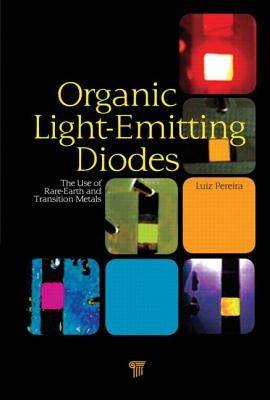
- We will send in 10–14 business days.
- Publisher: Jenny Stanford Publishing
- Year: 2012
- Pages: 348
- ISBN-10: 9814267295
- ISBN-13: 9789814267298
- Format: 15.5 x 22.9 x 2.3 cm, hardcover
- Language: English
- SAVE -10% with code: EXTRA
Organic Light Emitting Diodes (e-book) (used book) | bookbook.eu
Reviews
Description
This book addresses the development of OLEDs based on rare-earth and transition metal complexes, especially focusing on europium, terbium, ruthenium, and rhenium. The idea is to explain how these organic materials can be used to build OLEDs. Taking into account the actual state of the art and the expected pathways, the book proposes further developments in the field. It presents intensive experimental results for a better explanation. This book is meant for scientists and engineers who work in this new OLED framework. It also has didactic utility for graduation students and teachers working on optoelectronics.
EXTRA 10 % discount with code: EXTRA
The promotion ends in 20d.17:07:15
The discount code is valid when purchasing from 10 €. Discounts do not stack.
- Publisher: Jenny Stanford Publishing
- Year: 2012
- Pages: 348
- ISBN-10: 9814267295
- ISBN-13: 9789814267298
- Format: 15.5 x 22.9 x 2.3 cm, hardcover
- Language: English English
This book addresses the development of OLEDs based on rare-earth and transition metal complexes, especially focusing on europium, terbium, ruthenium, and rhenium. The idea is to explain how these organic materials can be used to build OLEDs. Taking into account the actual state of the art and the expected pathways, the book proposes further developments in the field. It presents intensive experimental results for a better explanation. This book is meant for scientists and engineers who work in this new OLED framework. It also has didactic utility for graduation students and teachers working on optoelectronics.


Reviews